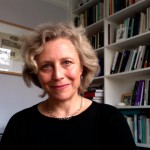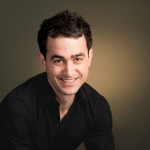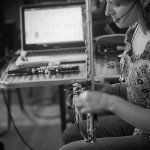“Re-Assembling Extracts”
“Re-Assembling Extracts” is a four-year research-creation project that explores the possibilities of sustained, inter-traditional music-making in Montreal and Berlin. Due to migration and the transnational flow of people, ideas, and sounds, both cities have become fruitful sites for collaboration. Musicians from different traditions are able to encounter each other through their everyday, urban experience. Although several inter-traditional ensembles have emerged over the past 50 years, most of them have been short-lived and have contributed little to knowledge production, reflection, and meaningful collaboration among musicians. This project strives to develop and comparatively examine long-term, innovative approaches to inter-traditional music-making in Montreal and Berlin. Such approaches are grounded by the context of the multi-cultural city — its unique sense of place, socio-political condition and cultural environment — and the music traditions present within it.
The project will focus on two inter-traditional ensembles, the Berlin-based Ensemble Extrakte and The Sound of Montreal (an expansion of the renowned Ensemble Constantinople), to build on the inter-traditional musical explorations and arts practices currently taking place in these cities. Each ensemble will form a research team with local musicologists and anthropologists to engage in dialogue and critical analysis over the course of the project. Dr. Jin-Ah Kim (Humboldt University, Berlin), Dr. Oliver Seibt (Goethe University, Frankfurt), Dr. Raimund Vogels (Hildesheim University), and Dr. Julio Mendívil (Hildesheim University) will be working with Ensemble Extrakte in Berlin, while Dr. Jonathan Goldman (Université de Montréal) and Georgina Born (Oxford University, McGill University) will be observing the work of The Sound of Montreal. Julie Delisle (Ph.D., Musicology) and Ofer Pelz (Ph.D. candidate, Music Composition) will also be working with Dr. Goldman on the project, and MA student Stefan Blum will be assisting Dr. Kim.
Both research teams will participate in three yearlong cycles of musical collaboration, conceptual development, and systematic and cumulative reflection. Through a series of workshop phases, the research teams will explore the practical and theoretical implications of transcultural music-making in a multi-cultural urban space. The aim of each collaborative cycle is to produce a rich body of creative techniques, scores, recordings, and analyses that demonstrate and establish new avenues for trans-traditional, multi-traditional, and inter-traditional music-making. Following each yearlong cycle, both ensembles will create an evening-length performance shaped by the musical traditions present in each city and focused on a specific issue in inter-traditional music-making.
Throughout the project, musicians will deeply immerse themselves in new musical traditions to consider alternative expressions of time, space, pitch, and sound with the aim of creating a robust inter-traditional music language specific to each city. Each ensemble will invent new tools, communication modes, and musical cues, and will negotiate musical incompatibilities. Musicians involved in the project and academic observers, who have expertise in the theoretical questions and applications of inter-traditional and inter-cultural music-making, will write journals, analyses, descriptive and prescriptive texts, and essays around this process. These written accounts will form an apparatus of systematic reflection on and feedback to the ensembles’ developing practices.
For the first two years of the project, both sets of ensembles and local academics will work separately, exchanging information, scores, videos, and recordings digitally and meeting only once a year for a final outcome workshop. Each research team will focus predominately on each city’s unique musical traditions and the social and political contexts that inform them throughout their musical collaboration. Invaluable insights will be gained on the interdependency of globalized music-making and the transnational, multi-cultural urban spaces where it actually happens. This will be accomplished by conducting the research in two separate places at the same time, comparatively analyzing how musicians in the two cities react to the same score, and translating rule-systems developed by one ensemble to the other.
Sound of Montréal
Sound of Montréal is a Montréal-based ensemble for artistic music research. We want to experiment with new approaches to trans-cultural and trans-traditional musicking and investigate their potential for new sonic and musical aesthetics.
We are driven by our desire to question western concepts of “the concert”, “the score” and “the piece”, we want to explore new social roles for music, new forms of notation and the role of emerging technologies both in making and in listening to music.
Every aspect of our work is informed by perspectives stemming from a variety of of traditions and genres, but equally enriched by conceptual ideas from traditional and contemporary poetry, visual traditions and body-centered art forms from around the globe.”Extracts” from these, inserted into unusual musical contexts and forming unexpected combinations, shall then become a new kind of music – a musicking moving in the contact zones between different musical heritages, yet far from exotistic clichés and naïve world music.
What happens when we improvise within the formal constraints of Dhrupad, but using playing techniques from BeBop in a Slendro scale ? Or when an interactive computer score shows musicians only the overtones they are expected to produce at any given moment, regardless of the instrument they play ? What happens if we do not standardize the different tunings of traditional instruments but use these to build a microtonal scale – and then create rhythmically complex polyphonic music from it, using ensemble techniques gleaned from African Banda-Linda or Aka choirs ?
The musicians of Sound of Montréal all come from a rich background both in one particular tradition – and have many years of experience in working across traditional genres and aesthetics.
They all share a unusual blend of individual mastery, aesthetic openness and mutual trust that allow them to creatively question their own traditional background (and for us the eurological so-called New Music is just one tradition among many).
Musicking at is all about process: the Sound of Montréal does usually not play compositions or pieces that were not developed – or at least re-made – during one of our intense research workshops. It does not issue standard commissions, but it will from time to time invite artist-researchers from different backgrounds and genres to lead and shape our creative research for a specific project.
One important aspect of our work is an artistic panel consisting of renowned musicians, composers, theoreticians and curators. They are regularly invited to assess, accompany, evaluate and inspire our workshops and our public presentations.


